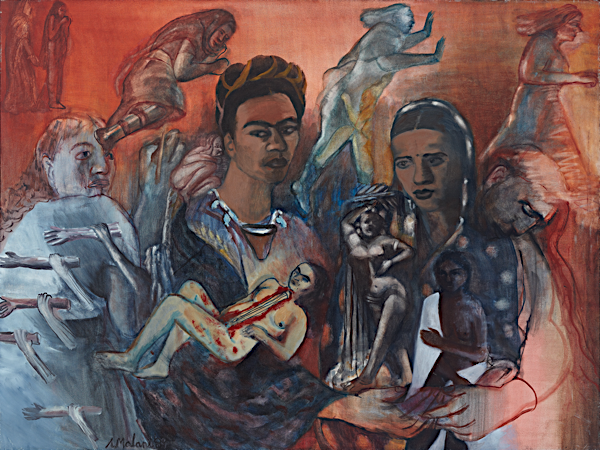Special Topics in History of Art: Globalization & Modern/Contemporary Art

While modern and also contemporary art are widely understood to be global the concepts demanded for this understanding are still very much works in progress. This class will simultaneously explore the fascinating and variegated modern and contemporary art movements that have taken place across Mexico to South Africa, India, Australia and China, and the kind of concepts required to think modern and contemporary art in a truly globalized way. A central theme will be the way the culture of financial capital around globalization has changed the conduct of world art so that it is now less recognizably "post-colonial", less tied to the projects of nationalism, decolonization, the retrieval of the pre-colonial past in the name of new nations and peoples, the critique colonialism and race, and the question of exclusion from global markets. And more tied to global projects (around race, inequality, the environment, the culture of humanitarianism, the global media), to the synergy of globalized forms into new patterns, to the international character of markets and branding, to global politics and audiences.
Since modern art in much of the world arose in conversation with European modernism and the European avant-gardes the European story will be part of the class. However, it is also important to point to those traditional forms of carving (in southern Africa), painting (in Aboriginal Australia), etc. which have evolved organically, without any major influence from European modernism, and evolved to address modern life through their own traditional lenses and anxieties. It has been the fate of such traditions to face difficulties, fractures, loss of spirit and other ills when they enter the contemporary art world and thereby become "globalized". On the other hand the globalization of traditions can open up enormous opportunity. What is clear is that the system of globalization is hegemonic; its pressures close to irresistible. This leads to the broader question, that will sit centrally in the class, about the extent to which globalization of the arts creates new forms of inequality across regions.
The format will be lecture/seminar, with at least some students giving in class presentations. Students will be encouraged to bring in materials from other parts of the world, and/or relevant art theory. Students will be required to write a paper of 12 pages or more on a topic of their choosing, due at the end of the class.